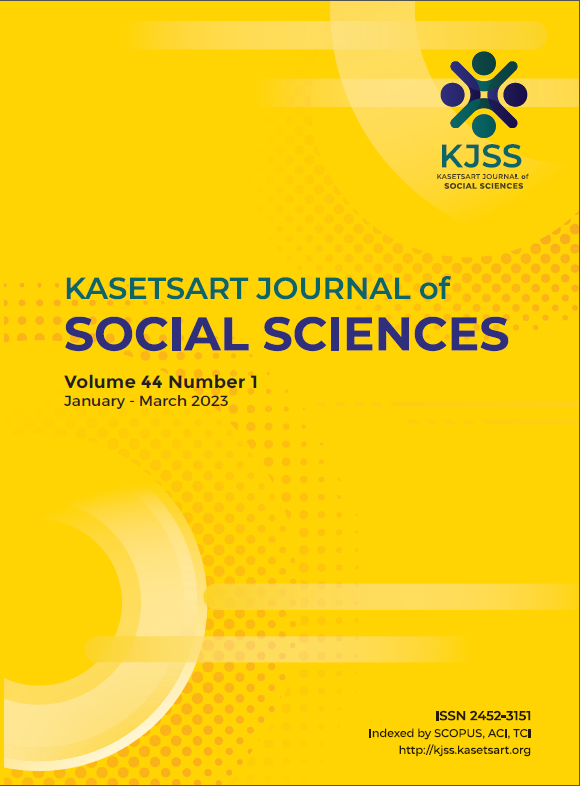Invariance analysis of causal relationship model of self-disclosure in social media of generation Y and Z: A case of collectivism country
Keywords:
collectivism, generation, self-disclosure, social mediaAbstract
The objectives of this study were: (1) to study the relationship among all observed variables with a self-disclosure model; (2) to test the structural equation model of generations Y and Z; and (3) to analyze the direct, indirect, and total effects of the Structural Equation Modelling (SEM) of self-disclosure, and to test the invariance of the SEM between generations Y and Z during COVID-19 in collectivism within a country. A sample cohort of 804 participants was examined by a 6-scale questionnaire. The data were analyzed by using descriptive statistics, confirmative factor analysis, correlation coefficient, structural equation modeling, and invariance analysis. The results showed that the model was an acceptable fit with the empirical data by Chi-square = 1712.23, df = 290, p = .00, χ2 /df = 5.90, GFI = 0.85, AGFI = 0.82, RMSEA = 0.07 and SRMR = 0.07. The model of social influence, emotional intelligence, digital intelligence, and selfesteem affecting self-disclosure indicated variance of parameters in the matrix of causal effects between: (1) endogenous latent variables and latent exogenous variables to endogenous latent variables; and (2) variance-covariance of the latent exogenous variable and variance-covariance of error, across generations. The result leads to the recommendation that parents, guardians, organizations, and leaders need to comprehend the generation preferences such as styles, emotional intelligence, and self-esteem, as well as endorse digital intelligence, and group cohesion among these generation cohorts, which will strengthen positive self-disclosure and not falling victim to cybercriminals.
Downloads
Published
How to Cite
Issue
Section
License

This work is licensed under a Creative Commons Attribution-NonCommercial-NoDerivatives 4.0 International License.
This is an open access article under the CC BY-NC-ND license http://creativecommons.org/licenses/by-nc-nd/4.0/










